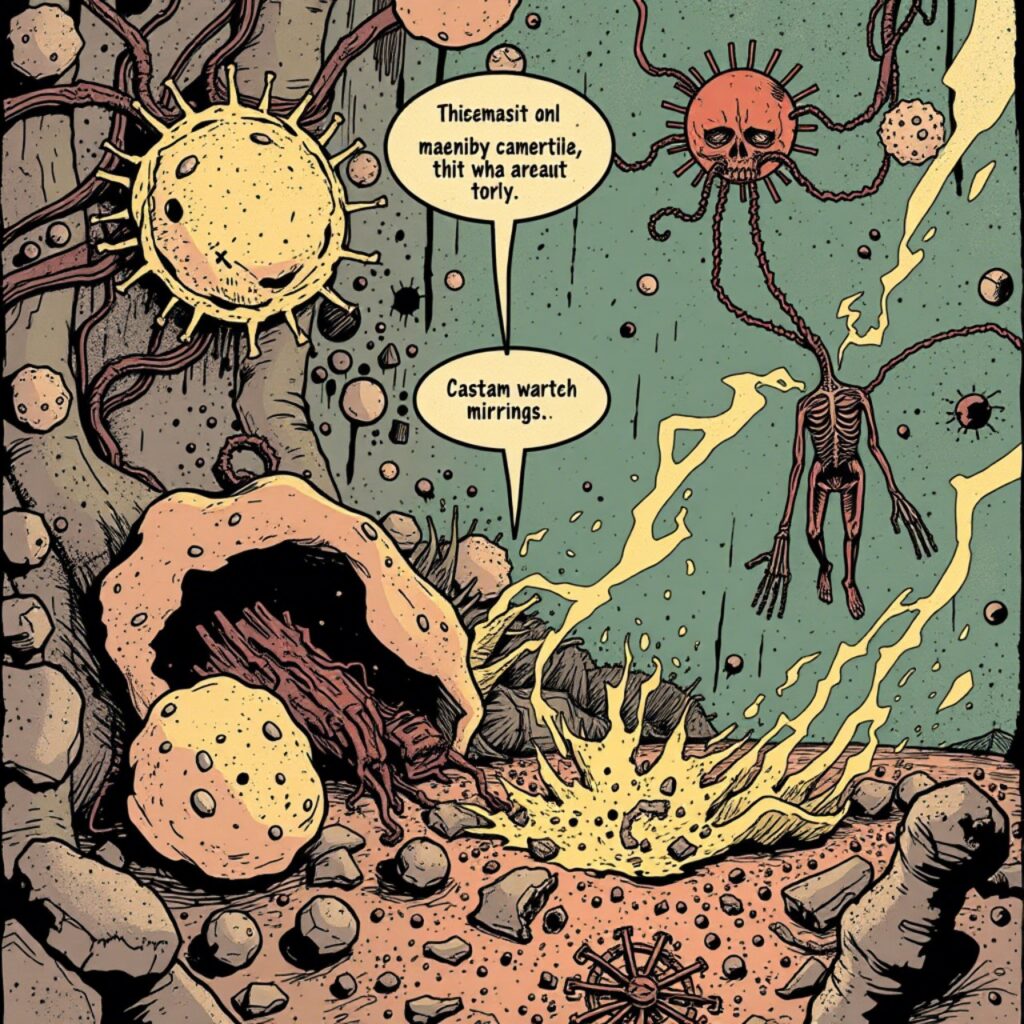The Love Trio Always Vanishes First

Inside the Hidden Microbial Collapse That Precedes Autism, ADHD, and Modern Immune Confusion
In the quest to understand why so many children now present with early developmental disruption, emotional flatness, or neuroinflammatory distress, one quiet pattern keeps surfacing—so quiet, in fact, that it’s often dismissed as correlation, not cause.
Yet across studies on autism, ADHD, mood disorders, post-vaccine immune chaos, inflammatory bowel disease, and even long COVID, one microbial motif reappears:
Akkermansia. Faecalibacterium. Roseburia.
They vanish. Often first. Sometimes entirely.
This microbial trio—what we’ve come to call the Love Bacteria—isn’t just important for digestion or immunity. They are deeply implicated in emotional perception, neuroplasticity, vagal tone, gut barrier integrity, and the ability to feel safe enough to connect.
And their early disappearance may be more than a downstream symptom. It may be a keystone collapse that triggers the rest.
These Three Microbes Are Not Random
While thousands of species live in the gut, only a few function as systemic regulators—analogous to old forest keystones. Among them, this trio keeps appearing in emotional, cognitive, and immune recovery studies:
1. Faecalibacterium prausnitzii
- One of the most abundant healthy colonizers in human stool samples—but almost entirely absent in those with severe inflammation or neurodegeneration.
- Major producer of butyrate, a short-chain fatty acid (SCFA) that calms microglia, promotes brain-derived neurotrophic factor (BDNF), and quiets danger signals.
- Studies show children with autism have dramatically reduced or completely absent Faecalibacterium levels. [Source: Luna et al., 2017; Strati et al., 2017]
2. Roseburia spp.
- Another butyrate producer, Roseburia is associated with emotional regulation and tight junction support (aka sealing the gut).
- Its presence is inversely related to cytokine storms and mood instability.
- Markedly depleted in ADHD, IBD, depression, and autism. [Source: Liu et al., 2019; Chen et al., 2021]
3. Akkermansia muciniphila
- The mucus layer’s best friend. It strengthens the gut wall and feeds on mucin, keeping immune interactions calm and preventing antigen leakage.
- It cross-talks with regulatory T cells (Tregs), helping to prevent overactivation of the immune system.
- One of the most abundant healthy colonizers in human stool samples—but almost entirely absent in those with severe inflammation or neurodegeneration.
Across Studies, They’re Always Gone
Autism Studies
- Faecalibacterium missing or severely depleted in nearly every autism microbiome study.
- Roseburia nearly absent in ASD children compared to neurotypical siblings.
- Akkermansia levels correlate directly with behavioral symptom severity—less Akkermansia, more shutdown or agitation.
ADHD Studies
- Multiple trials show a drop in both butyrate producers and mucin degraders, with Roseburia and Akkermansia both absent in severe ADHD phenotypes.
Post-Vaccine Regression Cases
- Mouse models of vaccine-triggered neuroinflammation show an immediate drop in Akkermansia and Faecalibacterium.
- Human case reports suggest that post-vaccine encephalopathy correlates with the collapse of this trio, and later recovery correlates with their slow return—especially after fecal transplant therapy.
Fecal Transplant Studies
- Studies from Dr. James Adams (ASU) and Kang et al. show that fecal microbial transplant (FMT) in autism restores Akkermansia and Faecalibacterium, with long-term behavioral gains.
These gains persist years later, suggesting they are not just symptomatic relief—they indicate terrain repair.
Is This Trio Missing From Birth? Or Do They Vanish Under Fire?
This remains an open question—but the pattern is clear.
Some infants born by C-section, formula-fed, or exposed to antibiotics show no traces of Akkermansia or Faecalibacterium from day one. Others seem to have them—but lose them after immune stressors: vaccines, viral infection, or prolonged antibiotic exposure.
And in some children with regressive autism or sudden-onset ADHD, parents describe a clear “before and after”—a child who made eye contact, laughed, socialized—then suddenly withdrew. Microbiome sampling in these windows often shows a dramatic collapse of the Love Trio.
So while we don’t yet know the primary event, the loss of this trio is consistent, repeatable, and visible across models.
Why It Matters
Without this microbial trio, the gut wall becomes permeable, microglia shift to high-alert, cytokine signals flood the brain, and the child’s nervous system enters defensive mode.
From that point on, learning becomes threat-based.
Eye contact becomes overwhelming.
Emotions become muffled.
And love—even if available—can no longer be received.
It’s not psychology. It’s signal interference.
Conclusion: The First Step in Reversing the Storm
If these microbes vanish first, they may also need to return first before any lasting repair is possible.
This is not a probiotic pitch.
You can’t reseed a scorched forest with a few capsules.
But you can rebuild habitat. You can remove signal interference. You can recreate the internal conditions in which these species naturally reappear.
And when they do, something shifts:
- The gut wall seals.
- The immune system quiets.
- The danger signals drop.
- And for the first time in years…
The child looks you in the eyes again. (and here i beg pause, and as someone that followed the auto immune reboot, its not a one pil answer…the trio dissapears first and makes home last, the in-between is a journey of making better choices BUT! the results do happen piece by piece)
“If the Love Bacteria are alive → Each checkpoint flows → Child thrives.
If they vanish → Liver blocks, Lungs collapse, Heart races, Kidneys freeze, Spleen spirals.”
